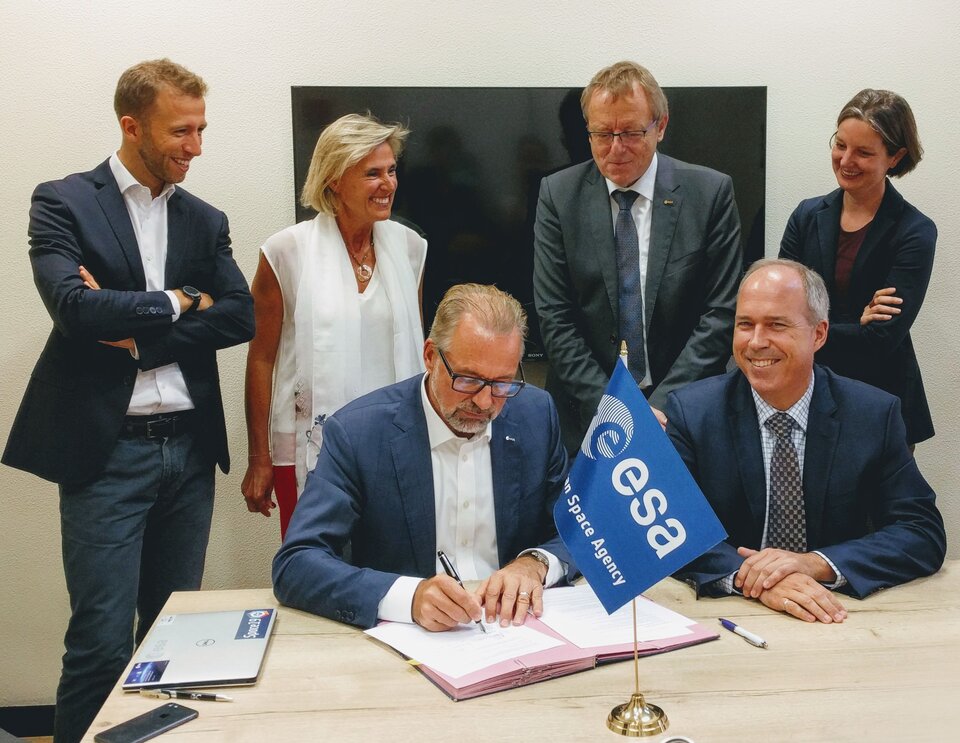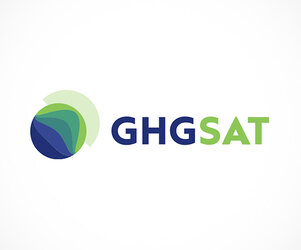ESA’s ɸ-week 2019 opens with a flourish
Following the success of last year’s ɸ-week, this year’s event promises to be even more exciting. With the conference room packed to the gunwales, ɸ-week 2019 kicked off this afternoon at ESA’s centre of Earth observation in Italy with a series of stimulating talks, lively debate and an announcement of a new initiative.
In essence, ESA’s concept of ɸ (pronounced ‘fee’) encapsulates innovation, new technology and cross-disciplinary cooperation to explore how satellite data coupled with digital technologies, such as artificial intelligence and blockchain, can bring benefits to business, industry and science – and also how this marriage can help to develop new Earth observation-based products and services.
Today, there are numerous satellites and sensors delivering a huge wealth of data, not only to understand how our planet works, but also for use in a myriad of practical applications, from farming and water management to maritime safety, all of which, ultimately, improve daily lives.
While we are rich in data, it is important to get an even better return by coupling these data with aspects of the digital revolution such as artificial intelligence in order to improve data quality and make delivery of data more efficient, which, in turn, will help boost business and the economy.
The opening included a session on artificial intelligence and the rise of the intelligent machine. Although one might assume this to be more like science fiction than science fact, the debate made it clear that artificial intelligence is definitely here – and, indeed, it has much to offer.

In his opening address, Josef Aschbacher, ESA’s Director of Earth Observation Programmes, said, “Last year, we had the first ɸ-week and we actually changed our thinking within ESA, thanks to inputs and discussions on how artificial intelligence, blockchain and Earth observation can closer work together.
“And this week, we will continue to focus on disruptive innovation, how this affects space and how space can benefit from all the elements of New Space – and I believe we have to work faster to make this work.”
While the goal is to accelerate the development of both artificial intelligence and space-related research, Max Craglia, from the EC Joint Research Council, noted, “There is a digital transformation taking place that is affecting all of us.
“Clearly, there is a sense of global competition regarding artificial intelligence and Europe is finding its path to reinforce and strengthen the values under which the European Union is funded, values of transparency, democracy and non-discrimination.
“And, we need to prepare for the socioeconomic changes that artificial intelligence will bring.”
The afternoon followed with a focus on fostering innovation, which included an announcement from Dr Aschbacher about the next ɸ-Sat challenge. The first ɸ-Sat, which will be launched in the coming months, is the first artificial intelligence chip to be carried on a small satellite – and as Dr Aschbacher stated there will now be a challenge promising a cash prize to develop ɸ-Sat2.

With the climate crisis high on the global political agenda and the issue of greenhouse gases a serious concern, today also saw ESA, the Canadian Space Agency and the Canadian GHGSat company sign a Memorandum of Intent.
The new collaboration will entail the provision of free data from the GHGSat constellation to the scientific community and support global efforts to monitor greenhouse gases and improve our understanding of chemical and physical atmospheric processes.
Another highlight of the afternoon was the announcement of the creation of the World’s first Artificial Intelligence Special Interest Group on Space, which has been established in partnership with CLAIRE, Europe’s largest artificial intelligence research network.
With the week’s programme packed with all manner of topics that explore New Space and the future of Earth observation along with numerous side events that include hackathons, training and workshops on education and more, a bootcamp is being held throughout to delve into Earth observation solutions for the energy sector.


Access the video














 Germany
Germany
 Austria
Austria
 Belgium
Belgium
 Denmark
Denmark
 Spain
Spain
 Estonia
Estonia
 Finland
Finland
 France
France
 Greece
Greece
 Hungary
Hungary
 Ireland
Ireland
 Italy
Italy
 Luxembourg
Luxembourg
 Norway
Norway
 The Netherlands
The Netherlands
 Poland
Poland
 Portugal
Portugal
 Czechia
Czechia
 Romania
Romania
 United Kingdom
United Kingdom
 Slovenia
Slovenia
 Sweden
Sweden
 Switzerland
Switzerland





























